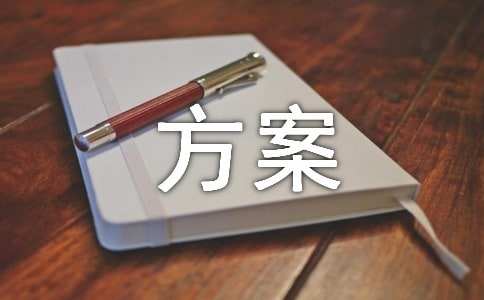备考英语不可忽视的100个细节(4):不可忽视的细节作文
时间:2020-02-23 07:36:18 来源:雅意学习网 本文已影响 人 
本文为你归纳的都是高考英语必考的知识细节,有些可能是你熟悉的,有些可能是你不太熟悉的,有些可能是你从未引起重视的,但它们却都是高考每年必考的! 每个细节都为你总结了一条命题规律,
每个细节都为你揭开了一个考点秘密,
每个细节都为你扫除了一个备考盲点,
每个细节都为你打开了一个得分通道!
人人都知道细节决定成败,但并不是每个人都有心去真正掌握这些细节!
细节21 must的最基本用法
A. 这个细节你熟悉吗?若不熟悉,下面为你解说:
must的最基本用法包括两个方面:一是must表示“必须”的用法,这是must最最基本的用法,在初中就学过了;二是mustn’t表示“不准”的用法,注意mustn’t主要表示禁止或拒绝,意思是“不准”“不允许”等,不要误解为“不必”,表示后者的意思要用needn’t或don’t have to。
B. 这样的知识点高考会考吗?你若怀疑,下面为你验证:
(1) ―Shall I inform him of the change of the schedule right now?
―I am afraid you _______, in case he comes late for the meeting. (2011年福建卷)
A. will B. must C. may D. can
(2) I have told you the truth. _______ I keep repeating it? (2010年江西卷)
A. Must B. Can C. May D. Will
(3) ―May I take this book out of the reading room?
―No, you _______. You read it in here. (2010年陕西卷)
A. mightn’t B. won’t C. needn’t D. mustn’t
(4) You _______ park here! It’s an emergency exit. (2010年重庆卷)
A. wouldn’t B. needn’t C. couldn’t D. mustn’t
C. 上面的考题你会做吗?若需要帮助,请看下文分解:
(1) B。must在此表示“必须”, I am afraid you must的意思是“恐怕你必须要告诉他”,目的是“以防他开会迟到”。其余三个选项,要么意思不对,要么语气太弱,与此处的语境不符合。
(2) A。比较四个选项,只有选A意思最通顺。must在此表示“必须”“一定”。句意为:我已经把实情告诉你了,非得要我反复重复不可吗?
(3) D。对于 May I...开头的一般疑问句,其否定回答通常是No, you can’t(不,你不能)或No, you mustn’t(不,你不准)等,这样才能使语气通顺。
(4) D。根据句中的It’s an emergency exit(这是安全出口)可知,空格处应填mustn’t(不准),因为常识告诉我们,安全出口处不能停车。
细节22 must表推测的用法
A. 这个细节你熟悉吗?若不熟悉,下面为你解说:
must的推测性用法是高考英语对情态动词考查非常重要的一个考点。高考对该考点的命题主要涉及两个方面:一是考查must表示对现在情况或通常情况的推测,此时其后接动词原形,且所接动词通常是be, have, know等表示状态的动词;二是考查must对过去情况的推测,此时其后接动词的完成式(即have +过去分词)。
B. 这样的知识点高考会考吗?你若怀疑,下面为你验证:
(1)―My teacher says she’s canceling the class play. I just can’t understand.
―_______. You were looking forward to it. (2011年福建卷)
A. It doesn’t matter B. It’s very unwise of her
C. Don’t worry about it D. You must be disappointed
(2) ―Good morning. I’ve got an appointment with Miss Smith in the Personnel Department.
―Ah, good morning. You _______ be Mrs. Peters. (2010年北京卷)
A. might B. must C. would D. can
(3) “You _______ have a wrong number,” she said. “There’s no one of that name here.” (2010年浙江卷)
A. need B. can C. must D. would
(4) Jack described his father, who _______ a brave boy many years ago, as a strong-willed man. (2010年安徽卷)
A. would be B. would have been
C. must be D. must have been
C. 上面的考题你会做吗?若需要帮助,请看下文分解:
(1) D。这道题本质上考查交际口语,但做好此题的关键是要了解must表示推测的用法。上文说要取消the class play,下文又说You were looking forward to it(你原来一直在盼着)。根据常识可知,你一直盼着的事被取消了,那肯定是“一定很失望”,即选D。
(2) B。must 在此表示肯定推测,意为“一定”。对话的意思是:“早上好,我是与人事部的史密斯小姐约好而来的。”“早上好,那您一定是彼得斯夫人吧。”
(3) C。根据句中的There’s no one of that name here(这里没有叫那个名字的人)可知,空格处应填must,表示肯定推测,you must have a wrong number的意思是“你一定是拨错号码了”。
(4) D。根据句中的many years ago(许多年以前)可知,此处谈论的是过去的情况,故应选用“情态动词+完成式”结构;再根据句中的 a strong-willed man(意志坚强的)可知,空格处应用肯定推测,故选D。
细节23 must表示坚持的用法
A. 这个细节你熟悉吗?若不熟悉,下面为你解说:
高考有时考查must表示“坚持”的用法。所谓表示“坚持”,就是指坚持或执意要做某事,有时含有固执的意味,尤其用于if you must...这类表达中。如:
If you must drink so much, of course you’ll feel sick. 你如果偏要喝这么多酒,你必然会觉得难受的。
If you must travel at night in dangerous areas, turn on the interior light in your car. 如果你非要晚上在危险地区行驶不可,那就把车里的内灯打开。
B. 这样的知识点高考会考吗?你若怀疑,下面为你验证:
(1) If you _______ smoke, please go outside. (2011年全国卷II)
A. can B. should C. must D. may
(2) If you _______ go, at least wait until the storm is over. (2011年辽宁卷)
A. can B. may C. must D. will
(3)―May I smoke here?
―If you _______, choose a seat in the smoking section. (2006年山东卷)
A. should B. could C. may D. must
(4)― Could I have a word with you, mum?
― Oh dear, if you _______. (2006年浙江卷)
A. can B. must C. may D. should
C. 上面的考题你会做吗?若需要帮助,请看下文分解:
(1) C。must 在此表示坚持,考查if you must...的用法,句意为:如果你一定要吸烟的话,就请到外面去吸吧。
(2) C。must 在此表示坚持,考查if you must...的用法,句意为:如果你一定要去的话,至少也等这暴风雨停了吧。
(3) D。must 在此表示坚持,考查if you must的用法,句意为:如果你一定要吸烟的话,那就到吸烟区找个位子吧。
(4) B。must在此表示坚持,考查if you must的用法,句中if you must的意思是“如果你一定要说的话,你就说吧”。
细节24 can的最基本用法
A. 这个细节你熟悉吗?若不熟悉,下面为你解说:
这里所说的can的最基本用法,主要指can表示“能”和can’t表示“不能”的用法,这是初中就学过的知识,但在高考中仍经常考查到。同学们做这类题的基本方法是:看句意,原则上说,哪个选项使句意最通顺,最合情合理,哪个选项就是最佳的。
B. 这样的知识点高考会考吗?你若怀疑,下面为你验证:
(1) ―No one _______ be compared with Yao Ming in playing basketball.
―Oh, you are really his big fan. (2011年湖南卷)
A. can B. need C. must D. might
(2) The police still haven’t found the lost child, but they’re doing all they _______. (2011年四川卷)
A. can B. may C. must D. should
(3) Just be patient. You _______ expect the world to change so soon. (2010年全国卷I)
A. can’t B. needn’t C. may not D. will not
(4) I’m afraid Mr Harding _______ see you now. He’s busy. (2010年全国卷II)
A. can’t B. mustn’t C. shouldn’t D. needn’t
C. 上面的考题你会做吗?若需要帮助,请看下文分解:
(1) A。can在此表示“能够”。对话中第一句的意思是:在打篮球方面,没有人能够与姚明相比。
(2) A。can在此表示能力,do all one can的意思是“尽自己的能力去做”。又如:I shall do all I can to help you. 我将尽力帮助你。
(3) A。比较四个选项:can’t意为“不能”,needn’t意为“不必”,may not意为“不准”“可能不”,will not意为“将不”“不愿”。显然只有can’t的意思最符合句子语境。
(4) A。比较:can’t 意为“不能”,mustn’t意为“不准”,shouldn’t意为“不应该”,needn’t意为“不必”。显然只有can’t填入句中意思最通顺。
细节25 can表推测的用法
A. 这个细节你熟悉吗?若不熟悉,下面为你解说:
高考对can和could的推测性用法主要涉及以下两个方面:
一是考查can的推测性用法:根据英语语法,can表示推测时通常只用于否定句或疑问句,很少用于肯定句,但有两种情况属例外(即可用于肯定句):一是表示纯理论上的可能性,二是表示偶尔的可能性(意为“有时”)。如:
Anyone can make mistakes. 任何人都可能犯错误。
So data of this kind can be valuable. 因此这样的资料有时很有价值。
二是考查can或could 后接动词完成式的推测性用法,即用于对可能已经发生的情况进行推测。如:
She can’t [couldn’t] have left so soon. 她不可能走得这么早。
但“could + have + 过去分词”还可表示过去本来可能发生而实际上没有发生的情况,通常译为“本来可以”“本来可能”等,此时不能用can代替其中的could。如:
We could have got in for nothing―nobody was collecting tickets. 我们本可以不买票就进去――根本没人收票。
B. 这样的知识点高考会考吗?你若怀疑,下面为你验证:
(1) It _______ be the postman at the door. It’s only six o’clock. (2011年江西卷)
A. mustn’t B. can’t C. won’t D. needn’t
(2) ―How’s your new babysitter?
―We _______ ask for a better one. All our kids love her so much. (2011年浙江卷)
A. should B. might C. mustn’t D. couldn’t
(3) You _______ be hungry already―you had lunch only two hours ago! (2008年浙江卷)
A. wouldn’t B. can’t C. mustn’t D. needn’t
(4) It is usually warm in my hometown in March, but it _______ be rather cold sometimes. (2008年福建卷)
A. must B. can C. should D. would
(5) He did not regret saying what he did but felt that he _______ it differently. (2009年江苏卷)
A. could express B. would express
C. could have expressed D. must have expressed
C. 上面的考题你会做吗?若需要帮助,请看下文分解:
(1) B。此处的can’t表示否定推测,意思是“不可能”。句意为:门口的人不可能是邮递员,因为现在才6点钟。
(2) D。couldn’t在此表示推测,意为“不可能”。句意为:我们不能找到一个(比她)更好的保姆(言外之意:这是我们找到最好的保姆)。
(3) B。做此题关键是要注意破折号后面的语境。you had lunch only two hours ago的意思是“你两个小时前才吃过中饭”,据此可知,你现在“不可能”就饿了,故用can’t。
(4) B。can表推测时通常只用于否定句或疑问句,若用于肯定句,则表示理论上的可能性,或表示“有时”,本题中的can含有“有时”的意味,这从句末的sometimes可以看出。
(5) C。could have done表示过去可以做而实际上未能做的事,通常译为“本来可以”,句意为:他不后悔说出自己所做的事,但觉得原本可以换个方式来表达的。
细节26 shall用于第二、三人称的用法
A. 这个细节你熟悉吗?若不熟悉,下面为你解说:
高考对情态动词shall的用法只涉及一个方面,那就是考查shall在陈述句中用于第二人称和第三人称表示说话者的允诺、告诫、威胁、命令、规定、必然性等,通常译为“一定会”“必须”“应该”“可以”。如:
You shall receive all the money that is owed to you. 欠你的钱你都会拿到的。
Candidates shall remain in their seats until all the papers have been collected. 试卷全部收回后应试人才可离开座位。
B. 这样的知识点高考会考吗?你若怀疑,下面为你验证:
(1) ―Will you read me a story, Mummy?
―OK. You _______ have one if you go to bed as soon as possible. (2011年陕西卷)
A. might B. must C. could D. shall
(2) ―I haven’t got the reference book yet, but I’ll have a test on the subject next month.
―Don’t worry. You _______ have it by Friday. (2010年江苏卷)
A. could B. shall C. must D. may
(3) ― What does the sign over there read?
―“No person _______ smoke or carry a lighted cigarette, cigar or pipe in this area.” (2007年四川卷)
A. will B. may C. shall D. must
C. 上面的考题你会做吗?若需要帮助,请看下文分解:
(1) D。shall在此表示许诺,句意为:如果你尽快上床睡觉的话,你就可以听到一个故事(即我就给你讲一个故事)。
(2) B。此处的shall表示许诺,句意为:别急,下周星期五前一定可以拿到。
(3) C。句中的shall表示允许,句意为:谁也不能在本区域抽烟或手夹点燃的纸烟、雪茄或烟斗。
细节27 should后接动词完成式的用法
A. 这个细节你熟悉吗?若不熟悉,下面为你解说:
should后接动词完成式是高考英语对情态动词考查的一个重点,该结构主要用法有:
(1) 表示对可能已经发生的情况作推测,其意为“大概已经”“应该已经”。如:
The train should have already left. 火车大概已经开走了吧。
(2) 用于责备或遗憾,表示本来应该做的事而实际上没有做。如:
You should have told her all about it. 你本来应该都告诉她的。
其否定式表示做了不该做的事。如:
You shouldn’t have started smoking. 你本不该开始吸烟。
B. 这样的知识点高考会考吗?你若怀疑,下面为你验证:
(1) They _______ have arrived at lunchtime but their flight was delayed. (2011年全国卷I)
A. will B. can C. must D. should
(2) I _______ have watched that movie ― it’ll give me horrible dreams. (2010年山东卷)
A. shouldn’t B. needn’t
C. couldn’t D. mustn’t
(3) ―Sorry, Professor Smith. I didn’t finish the assignment yesterday.
―Oh, you _______ have done it as yesterday was the deadline. (2010年上海卷)
A. must B. mustn’t
C. should D. shouldn’t
C. 上面的考题你会做吗?若需要帮助,请看下文分解:
(1) D。should后接完成式用于谈论过去本来应该发生而实际上没有发生的情况。句意为:他们本来应该在吃中饭的时候到的,但他们的飞机晚点了。
(2) A。根据句中的it’ll give me horrible dreams(它让我做噩梦)可知,说话者后悔看了这部电影。再比较四个选项,只有A最符合句子语境。shouldn’t have done的意思是“本来不该做……”。
(3) C。根据句中的 as yesterday was the deadline(因为昨天是最后期限)可知,空格处填 should 最合适。should have done 的意思是“本来应该做……”。
细节28 may, might后接动词原形表推测
A. 这个细节你熟悉吗?若不熟悉,下面为你解说:
may, might后接动词原形主要用于对现在情况作推测。may和might表示推测时没有时态上的区别,只是用might比用may语气更不确定,表示的可能性更小。如:
Don"t go any closer ― it may [might] be dangerous. 别走近,可能有危险。
He may [might] get here in time, but I can’t be sure. 他可能及时来到这里,不过我不能肯定。
B. 这样的知识点高考会考吗?你若怀疑,下面为你验证:
(1) ― I don’t really like James. Why did you invite him?
― Don’t worry. He _______ come. He said he wasn’t certain what his plans were. (2011年北京卷)
A. must not B. need not C. would not D. might not
(2) Some people who don’t like to talk much are not necessarily shy;they _______ just be quiet people. (2009年安徽卷)
A. must B. may C. should D. would
(3) The traffic is heavy these days, I _______ arrive a bit late, so could you save me a place? (2009年辽宁卷)
A. can B. must C. need D. might
C. 上面的考题你会做吗?若需要帮助,请看下文分解:
(1) D。might在此表推测,意为“可能”,否定式might not的意思是“可能不”。对话的意思是:“我不怎么喜欢詹姆斯,你为什么要邀请他呢?”“不要着急,他可能不会来。他说他还不清楚自己的计划是怎样。”
(2) B。may在此表示推测,意为“可能”。句意为:有些不喜欢多说话的人并不一定是因为害羞,他们可能只是喜欢安静。
(3) D。might在此表推测,意为“可能”“也许”。注意:can虽然也可表示推测,但它通常不用于肯定句。句意为:这几天道路很堵,我可能会迟到一会儿,你能帮我留个座位吗?
细节29 may, might后接完成式表推测
A. 这个细节你熟悉吗?若不熟悉,下面为你解说:
may和might均可后接动词完成式,表示对过去可能发生的情况作推测,意为“可能已经”,此时用may或might没有时态上的区别,只是用might比用may语气更不确定,表示的可能性更小。如:
There might have been a strike. 可能有过一场罢工。
He may have gone to have his hair cut. 他可能理发去了。
除以上用法外,might后接完成式还可用于以下用法,此时不能用may代替might:
(1) 表示未曾实现的可能性,即过去本来可能发生而实际上没有发生的情况,通常译为“本来可以”“本来可能”等。如:
You were stupid to try climbing up there. You might have killed yourself. 你从那儿往上爬,太蠢了,你可能会摔死的。
有时可根据语境译为“好在没有”“差点”,尤其是当谈论的是“不好”的情况时。如:
It was really very dangerous. I might have killed myself. 那真是太危险了,我差点没命了。
(2) 表示批评或责备,即表示过去本来有责任或义务应该做某事,但实际上却没有做成,含有批评和责备的意味,通常译为“本来应该”“本来可以”“……就好了”等。如:
She might have told me she was going to stay out all night. 她要一夜不回来,应该事先告诉我一声呀。
B. 这样的知识点高考会考吗?你若怀疑,下面为你验证:
(1) ―I left my handbag on the train, but luckily someone gave it to a railway official.
―How unbelievable to get it back! I mean, someone _______ it. (2011年江苏卷)
A. will have stolen B. might have stolen
C. should have stolen D. must have stolen
(2) ―I can’t find my purse anywhere.
―You _______ have lost it while shopping. (2008年重庆卷)
A. may B. can C. should D. would
(3) What a pity! Considering his ability and experience, he _______ better. (2008年江西卷)
A. need have done B. must have done
C. can have done D. might have done
C. 上面的考题你会做吗?若需要帮助,请看下文分解:
(1) B。might后接完成式在此表示过去本来可能发生而实际上并没有发生的情况。对话中答句的意思是:手提包没丢真是不可思议!我是说,本来是可能被人偷掉的。
(2) A。may have done的意思是“可能已经做……了”,用于对过去情况作推测,又如:She’s late. I think she may have missed the train. 她迟到了。我想她可能误了火车。
(3) D。根据语法规则可知A和C不对,因为need和can用作情态动词时通常只用于否定句或疑问句,不用于肯定句;再根据句意,选D最佳。句意为:真是遗憾!考虑到他的能力和经验,他本来可以做得更好的。
细节30 need用作情态动词的用法
A. 这个细节你熟悉吗?若不熟悉,下面为你解说:
need的意思是“有必要”,主要用于否定句或疑问句,一般不用于肯定句。同学们在复习时主要应注意以下两种用法:
(1) needn’t do sth:其意为“不必做某事”,注意有时高考不是直接考查needn’t do sth,而是考查与它同义的另一表达don’t have to do sth。
(2) needn’t have done sth:其意为“本来不必做某事(但实际上已经做了)”。如:
I got up early, but I needn’t have done so, because I had no work to do that morning. 我起床起得很早,但我本来不必起那么早的,因为我那天早上没什么事做。
B. 这样的知识点高考会考吗?你若怀疑,下面为你验证:
(1) I _______ worry about my weekend―I always have my plans ready before it comes. (2011年上海卷)
A. can’t B. mustn’t C. daren’t D. needn’t
(2) Mark _______ have hurried. After driving at top speed, he arrived half an hour early. (2010年天津卷)
A. needn’t B. wouldn’t
C. mustn’t D. couldn’t
(3) ―What sort of house do you want to have? Something big?
―Well, it _______ be big―that’s not important. (2008年陕西卷)
A. mustn’t B. needn’t
C. can’t D. won’t
C. 上面的考题你会做吗?若需要帮助,请看下文分解:
(1) D。needn’t意为“不必”。句意为:我不必担心我的周末――我总是没等到周末就把计划安排好了。
(2) A。根据句中的After driving at top speed, he arrived half an hour early(在全速驾驶之后,他早到了半个小时)可知,Mark其实“没有必要”那么匆匆忙忙,所以空格处填needn’t最为合适。shouldn’t have done sth的意思是“本来不必做某事(但实际上做了)”。
(3) B。比较四个选项:mustn’t意为“不准”;needn’t意为“不必”;can’t意为“不能”“不可能”;won’t意为“将不”。显然,只有needn’t(不必)填入空格句子意思最通顺。
(编辑 陈根花)
推荐访问:英语 备考 不可忽视 备考英语不可忽视的100个细节(4) 不可忽视的100个细节 哪些细节不可忽视









